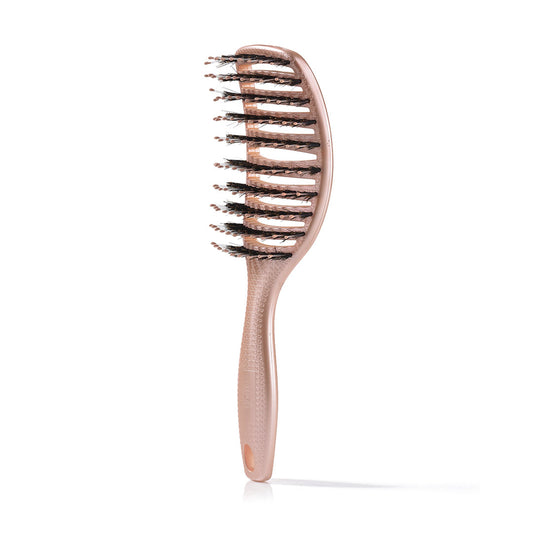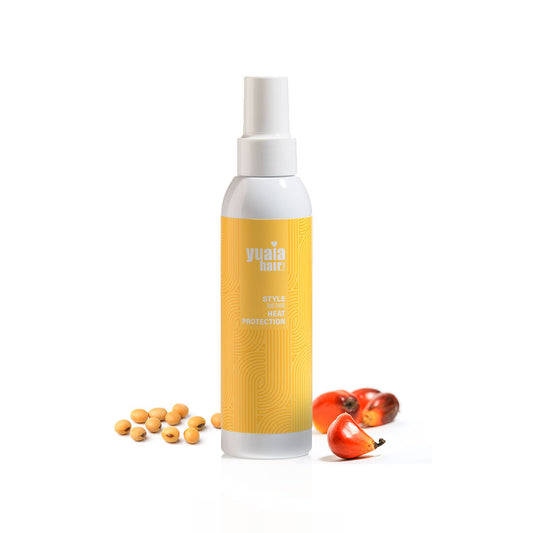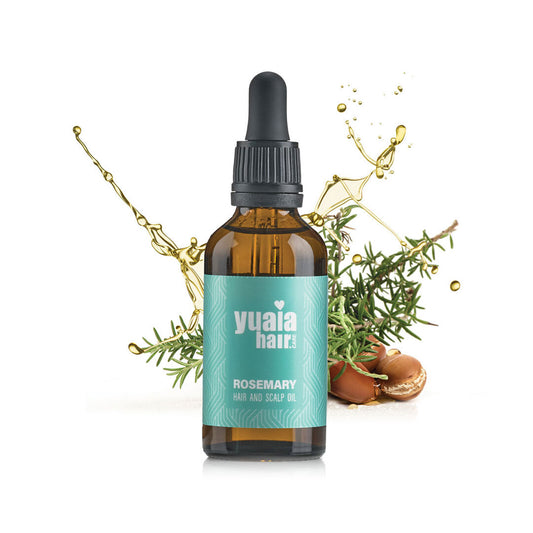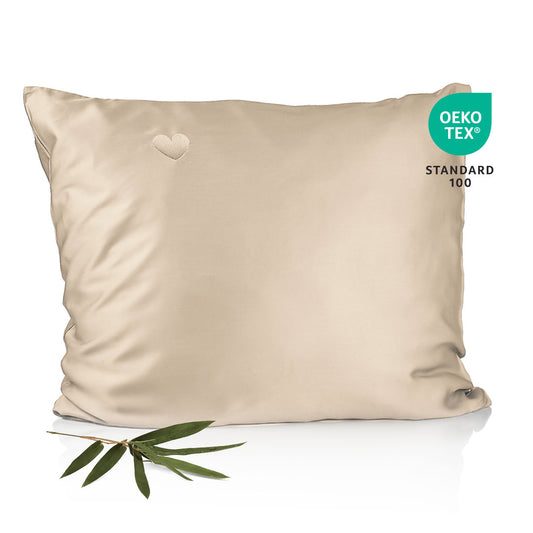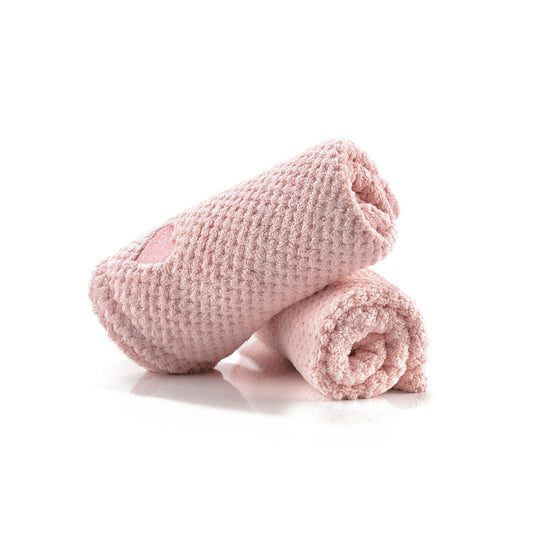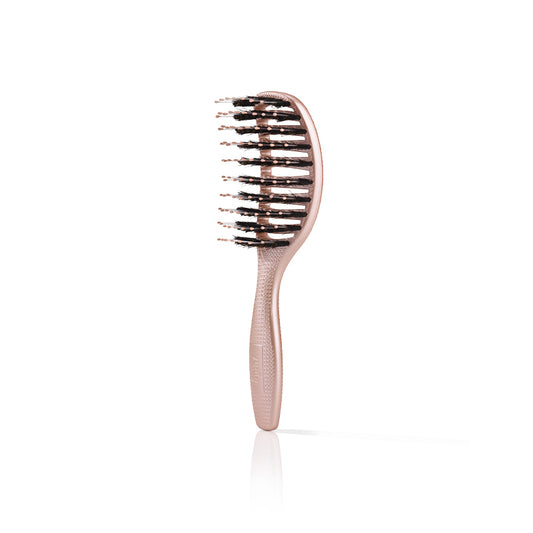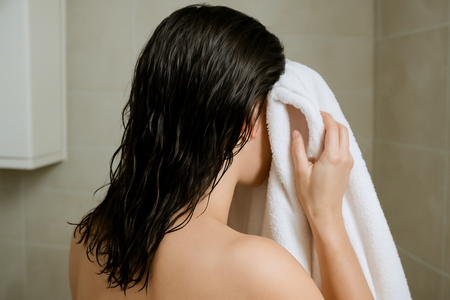
Can sleeping with wet hair cause mold? Uncover the real risks to your scalp

by Nanna Bundgaard | 20. October 2025 | Reading time: 6 minutes
Read more about the authorMany of us have experienced the habit of going to bed with damp hair, whether from a late-night shower or simply running out of time to dry it before hitting the pillow. However, this common practice raises some concerns about scalp health, particularly the myth that sleeping with wet hair can lead to mold growth on the scalp.
Can mold really grow on your scalp?
The idea that mold can grow on your scalp just because you sleep with wet hair is a widespread myth. While it’s true that a damp environment can promote the growth of microorganisms, true mold growth on a healthy human scalp is highly unlikely. What can happen, however, is that the warm, moist conditions may encourage the overgrowth of fungi and bacteria, potentially leading to scalp issues such as dandruff or seborrheic dermatitis.
What are the real risks of sleeping with wet hair?
Though mold isn’t a genuine concern, there are other risks associated with this habit. The damp environment created by wet hair can be a breeding ground for certain fungi and bacteria. Species like Malassezia, which is often linked to dandruff and dermatitis, and Aspergillus fumigatus, which can be problematic for those with specific health conditions, thrive in such conditions.
- Scalp infections: The combination of moisture and warmth can lead to fungal overgrowth, increasing the risk of scalp infections.
- Hair damage: Wet hair is more fragile and prone to breakage due to friction with your bedding. This is especially true for chemically-treated hair.
- Bedding hygiene: Moisture from wet hair can transfer to your pillow, encouraging microbial growth that can affect both scalp and skin health.
To minimize these risks, consider drying your hair before bed using a gentle method. Our Curvy Brush can help with gentle detangling, reducing breakage. Additionally, using a heat protectant spray when styling can further protect your hair from damage. By taking these precautions, you can maintain healthier hair and scalp conditions, even if you occasionally find yourself going to bed with wet hair.
The myth of mold: Can mold actually grow on your scalp?
It's a common misconception that sleeping with wet hair can lead to mold growth on your scalp. However, true mold growth on a human scalp is highly unlikely. What does happen is that the damp environment created by wet hair can foster the growth of fungi and bacteria, which thrive in moist conditions. These microorganisms can lead to scalp issues, but they are not the same as mold.
While mold as we know it from household environments isn't a concern, certain fungi can indeed flourish in the warm, damp environment that wet hair provides. For example, Malassezia, a type of yeast, can overgrow and contribute to conditions like dandruff and seborrheic dermatitis. Another concern is Aspergillus fumigatus, which can be problematic for individuals with weakened immune systems or respiratory issues.
Health implications: Understanding the real risks
Rather than worrying about mold, the focus should be on the potential for opportunistic fungal infections. These can occur when the balance of microorganisms on the scalp is disrupted, often by the prolonged presence of moisture. The risk isn't about mold growing on the scalp but rather about fungi that can lead to infections if given the right conditions.
To mitigate these risks, consider incorporating a rosemary hair oil into your routine. This product is known for its soothing properties and can help maintain the natural balance of your scalp, reducing the risk of fungal overgrowth.
Hair health risks: How does sleeping with wet hair affect your hair?
Sleeping with wet hair doesn't just pose a risk to your scalp; it can also affect the health of your hair itself. Wet hair is more fragile and susceptible to breakage due to the increased friction with your pillowcase. This is particularly true for chemically-treated hair, which is already compromised and more prone to damage.
Additionally, moisture from wet hair can transfer to your pillow, creating a breeding ground for bacteria and fungi. This can not only affect your scalp health but also lead to skin issues, such as acne, due to the transfer of microorganisms and hair products to your face while you sleep.
To protect your hair and scalp, consider using a bamboo pillowcase. This type of pillowcase is gentle on your hair and helps to reduce friction, while also being less hospitable to bacteria and fungi compared to traditional cotton pillowcases.
Bamboo pillowcase
100% Lyocell Bamboo® – OEKO-TEX® certified – Hypoallergenic and temperature regulating£24.00 £48.00
In conclusion, while the idea of mold growing on your scalp from sleeping with wet hair is a myth, the associated risks of fungal overgrowth and hair damage are real. By understanding these risks and taking preventive measures, you can maintain healthier hair and scalp conditions.
Get a 10% discount code sent to you
Receive the best tips and tricks for your hair from Lotte and Nanna 🥰
Additional considerations for hair care
While the myth of mold growth on the scalp has been debunked, it's important to consider the broader implications of sleeping with wet hair. Beyond scalp health, the condition of your hair itself can be affected. Wet hair is more susceptible to damage, and the friction caused by tossing and turning during sleep can lead to breakage. This is particularly concerning for those with chemically-treated hair, which is already more fragile.
Using a microfiber towel can help in gently drying your hair before bed, minimizing the risk of damage. Microfiber towels are known for their ability to absorb moisture effectively without causing friction or damage to the hair shaft.
Microfiber towel for hair
Super-absorbent microfibre shortens drying time and reduces frizz and breakage.£12.00 £24.00
Brushing and detangling
Proper brushing techniques also play a vital role in maintaining hair health when dealing with wet hair. Using a brush made with gentle bristles, like our Curvy Brush, can help detangle hair without causing unnecessary breakage. This is especially beneficial when dealing with wet hair, as it reduces the strain on the hair and prevents further damage.
Addressing skin concerns
Another aspect to consider is how wet hair can impact your skin. The transfer of moisture and hair products from your hair to your face can exacerbate skin issues, such as acne. This is due to the bacteria and fungi that thrive in the moist environment created by wet hair. Ensuring your pillowcases are clean and made from materials like bamboo, which are less hospitable to microorganisms, can help mitigate these concerns.
Frequently asked questions
Is sleeping with wet hair bad for your scalp?
Yes, sleeping with wet hair can create an environment that promotes fungal overgrowth, potentially leading to scalp infections and irritation.
What can I do if I have to wash my hair before bed?
If washing your hair before bed is unavoidable, try gently towel drying your hair with a microfiber towel and consider using appropriate hair care products to protect your hair and scalp.
Can pillow hygiene affect my scalp health?
Absolutely. Clean bedding is essential in preventing microbial growth, which can impact both scalp and skin health. Consider using bamboo pillowcases for better hygiene.
Get a 10% discount code sent to you
Receive the best tips and tricks for your hair from Lotte and Nanna 🥰
 2-4 day UK delivery
2-4 day UK delivery
 25.000+ satisfied customers
25.000+ satisfied customers
 Satisfaction Guarantee
Satisfaction Guarantee


















